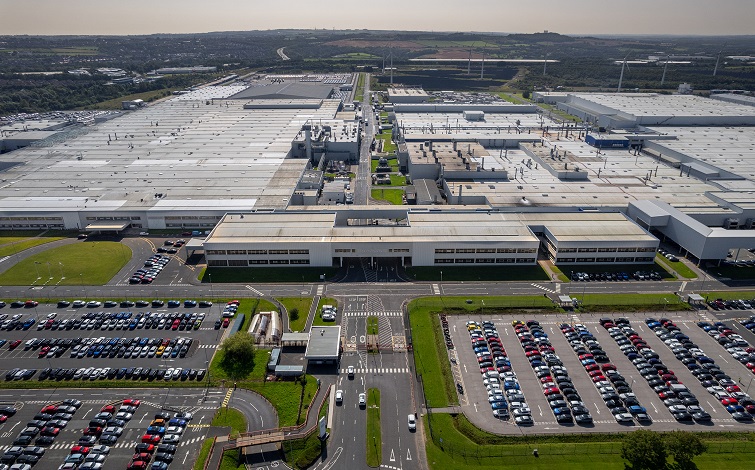Nissan Motor Co Ltd (NSANY:OTCPK) is investing £3 billion to expand its giant vehicle manufacturing plant in Sunderland, United Kingdom to reach its goal of producing only electric cars at the plant by 2030.
Last week, the carmaker announced the investment and said that all models (Qashqai and JUKE) manufactured at its Sunderland, United Kingdom plant will be electric vehicles. The company also announced a new electric vehicle that will be built onsite, the Nissan LEAF.
Manufacturing at the plant is powered by the EV36Zero Microgrid, which uses wind and solar farms.
Electric vehicles constitute approximately 16 per cent of Nissan’s overall sales in Europe. This forms part of their broader electrified sales mix, accounting for 50 per cent. The carmaker also aims to elevate this figure to 98 per cent within the next three years.
“Exciting, electric vehicles are at the heart of our plans to achieve carbon neutrality,” Nissan CEO Makoto Uchida said. “With electric versions of our core European models on the way, we are accelerating towards a new era for Nissan, for industry and our customers.”
https://www.youtube.com/watch?time_continue=1&v=SaOvSZLTxPI&embeds_referring_euri=https%3A%2F%2Fglobal.nissannews.com%2F&embeds_referring_origin=https%3A%2F%2Fglobal.nissannews.com&source_ve_path=Mjg2NjY&feature=emb_logo&ab_channel=Nissan
Read more: Where does BMW get its lithium from?
Read more: Ford and Nemaska Lithium sign long-term partnership for lithium hydroxide supply
“Nissan’s investment is a massive vote of confidence in the UK’s automotive industry, which already contributes a massive £71 billion a year to our economy,” said UK Prime Minister Rishi Sunak following Nissan’s announcement.
“Making the UK the best place to do business is at the heart of our economic plan.” Sunak added that the UK will continue to back businesses like Nissan to expand and grow their roots in the country every step of the way.
The government awarded £15m of funding for a £30m collaborative project led by Nissan. The funding aims to strengthen the technical expertise and R&D zero emission vehicle capability of the Nissan Technical Centre (NTCE) in Cranfield, Bedfordshire.
In October, the Society of Motor Manufacturers and Traders in the UK reported a 20.1 per cent year-on-year increase in battery electric vehicles (BEVs) for the 42nd consecutive month, reaching 23,943 units. This translated to a BEV market share of 15.6 per cent, marking a growth from the previous year’s 14.8 per cent.
While there is an expected increase in demand for batteries, lithium prices have exhibited volatility.
Last week, Platts, an S&P Global Commodity Insights division, assessed lithium carbonate spot prices at $20,000 per metric ton, which is a $3,000 per metric ton decrease in the month.
At the beginning of November, lithium hydroxide was assessed at $20,500 per metric ton, reflecting a $4,400 per metric ton decrease in the month.
Natalia@mugglehead.com














